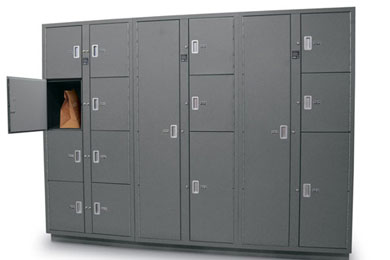
 Various sources are reporting that Google will announce a new unlicensed cloud locker service as early as today (5/10). Amazon recently debuted something similar and received strong criticism from the four major record labels who believe that a service which allows users to store music files in the cloud must be licensed.
Various sources are reporting that Google will announce a new unlicensed cloud locker service as early as today (5/10). Amazon recently debuted something similar and received strong criticism from the four major record labels who believe that a service which allows users to store music files in the cloud must be licensed.
Both Amazon and perhaps Google seem to believe that as long as the lockers are merely a storage facility for individual users a license is not necessary. The more streamlined approach—which apparently would require a license— would be to have one copy of a song in the cloud and allow various users to link and listen to it on demand. Apple is said to have such a system ready to roll as soon as it is able to negotiate licenses.
Google’s new system, termed a “passive” locker offers a limited set of fucnctions. Speculation is that the Google service will allow users to listen to songs they have uploaded in streaming mode, but users will then be unable to download them.
The WSJ explains, “Users of the service are expected to be able to listen to songs they have uploaded to the service in a so-called streaming mode but won’t be able to download the files themselves. That limit appears to be a bid by Google to hinder the service from being used to spread pirated music.”
Analysis: In essence the Google offering will resemble a personalized streaming music service, such as Spotify with the restriction that users will only be able to listen to music which they have uploaded themselves. This is a time consuming endeavor. Amazon has a similar unlicensed service which has some added bells and whistles as it is tied closely to Amazon’s MP3 music store and allows downloads. European company Spotify, has a complete streaming music service which is ad supported and/or subscription based. Labels are resisting a licensing deal which would allow Spotify to launch in the U.S. due to concerns that it will not generate enough revenue. Labels are also resisting a deal with Apple for a comprehensive streaming music service.
But is this smart? Pirated downloads outnumber paid downloads 20 to 1. Isn’t there something to be gained by subsidizing new business models and helping to create new “paid” consumer listening habits? Wouldn’t the music industry have benefited if it had nurtured Napster, for example, instead of litigating it out of existence which only succeeded in stimulating a new generation of filesharing sites and a decade of disastrous falling sales?

About the Author
David M. Ross has been covering Nashville's music industry for over 25 years. dross@musicrow.comView Author Profile


